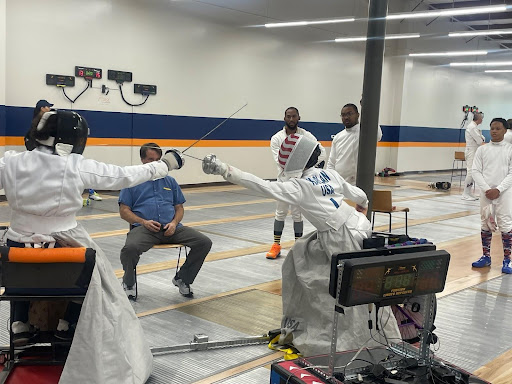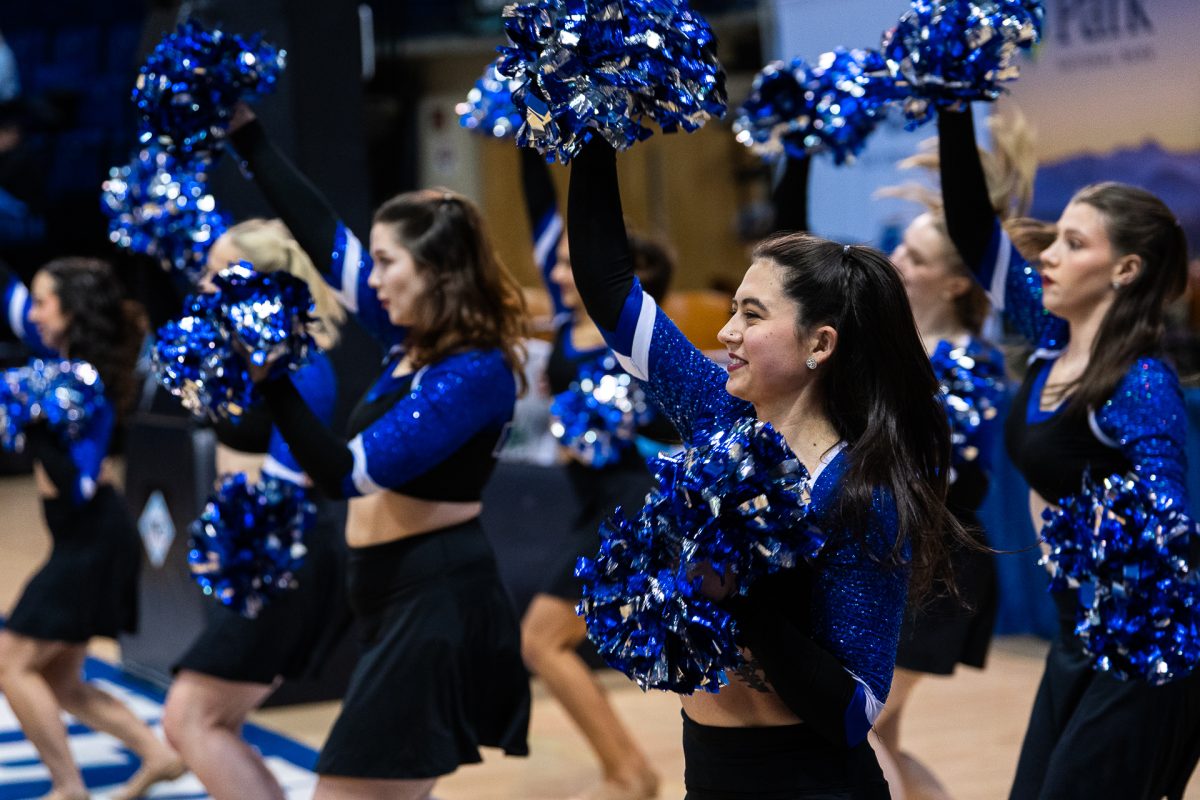Abe Kaplan, a 14-year-old Greensboro native, hopes to compete in the 2028 Paralympics.
Kaplan was born with hemiplegic cerebral palsy, a disability that affects one side of a person’s body and the ability to control their muscles. Around the age of 4 months, his parents noticed he was not using his right hand.
“He had an MRI at 6 months old, that’s when we got his official hemiplegia, cerebral palsy diagnosis,” said Abe Kaplan’s mother, Karen Kaplan.
Abe started therapy at 9 months. As a child, Abe was kind-hearted but got frustrated trying to adapt to everyday activities. His mother said Kaplan worked harder than most other kids to adapt, but he was always determined to be able to do the same things as his peers.
“He was pretty outgoing and didn’t seem self-conscious about his disability when he was little,” Karen Kaplan said. “I remember the first time he noticed he was the only person in his elementary school with hemiplegia. He was probably about first or second grade. I think it sometimes made it hard for him to relate to some of his peers. And I think it made him feel frustrated sometimes that he was different.”
One of the few places Kaplan saw people like himself was at a UNC Health therapeutic day camp in Chapel Hill for kids with hemiplegia.
Abe Kaplan first started sports at 3 years old and tried many sports such as horseback riding, swimming, tennis, flag football, soccer, biking and rock climbing, Karen Kaplan said.
Kaplan first got into fencing right after the pandemic quarantine.
“It was just after COVID and he had not been able to get out and do much in the last year so I asked him if he wanted to give it a try. He said yes and loved it from his very first class,” Karen Kaplan said.
After getting into non-disabled fencing, Kaplan’s coach suggested he branch out and try wheelchair fencing. It was only when he went to a training camp in Florida he found it was his passion.
Kaplan competed in the A4 classification, a para-sports classification for people with good trunk strength, in men’s foil, and epée last July at the U17 Wheelchair Fencing World Cup in Warsaw, Poland. It was his very first international competition. Kaplan has competed in more international tournaments since then.
“Yeah on the physical side. It’s helped a lot with speed and core strength, but on the mental side it’s given me confidence as someone with a disability to still do the things I do at the world level,” Kaplan said.
Abe Kaplan competed in foil and epée, and the team event, which went very well. Abe Kaplan said the competition was excellent and he was expected to win one match. Kaplan said this was a good step forward on his track to the 2028 Paralympics in Los Angeles.
“Even though I knew of the Paralympics, I never really knew where to watch,” said Kate Murphy, a UNC Asheville sophomore.
The networks worldwide that show the Paralympics often push them to affiliate networks making the games hard to find. Representation of para-sports is hard to find in the media, fans say.
“I think para-sports are very overshadowed by their able-bodied counterparts, especially in the U.S. and I think they deserve more attention because of how impressive everyone in the para is,” Abe Kaplan said.
Para-sports are a chance to have a place to be accepted and compete in elite competitions, Kaplan said.
“It’s important to show what people can do even if they have physical limitations,” Kaplan said.


















